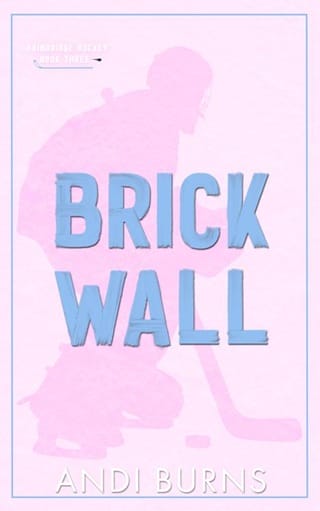Chapter 13
13
Jana moved through her daily routine like an automaton: washing and dressing, making breakfast for her and her father, trudging up Nerudova Street to Prague Castle with leaden legs. Grief made her body heavy and slow, but had left her mind in unrelentless activity. With every breath, she thought of Lenka. How terrified she must have been as she was arrested. The fear she must have felt for her unborn child. And what would she be doing now? Lying in a narrow bed, in an overfilled, filthy room with desperate people. Was she in the ‘dump' that Heydrich had talked about? And what about the transportation he'd mentioned? What did it mean?
As she tidied the bookshop before opening up, she worried about Lenka's baby. Andrej had said there would be doctors in the camp, but what access did they have to medical supplies and equipment? And Lenka had already been bleeding during her pregnancy and could be in danger during the birth. Desperate for news, she was tempted to visit Andrej at the police station, but realised that might look suspicious and put them both in a difficult situation .
Still, at lunch time, she hung around the area nearby, hoping to see him, but it appeared that since his promotion, his duties were less on the streets.
That bothered her too. He'd been promoted. Obviously, his Nazi boss was pleased with his work of keeping the citizens under Heydrich's thumb.
It was four days since Lenka's arrest, and Jana walked the streets, shivering in the March wind. She looked at the people who passed her by, going about their daily lives. How the citizens of Prague had changed. The cheerful, bustling crowd punctuated with laughter that epitomised the Czech sense of humour had vanished. Now, weary expressions with dull eyes were all she saw. Despair clawed at her as she recognised what those faces held. Defeat. After over three years of occupation under the might of the Reich, people needed a sign of hope. But Heydrich was systematically crushing the resistance and Lenka had just become another of his victims.
She walked past the newspaper man, shaking her head as he proffered her the daily paper. The propaganda sickened her. She fumbled in her handbag for her shop keys and glanced up to see Andrej walking towards her, wearing civilian clothes. Thank goodness. He must have news. Her heart began to thump as she tried to read his expression, gauge the news he had to impart.
He greeted her with a small smile but his eyes were earnest. Hands shaking, she unlocked the door and as soon as he'd followed behind her, she swirled to face him.
‘Have you heard anything? Is Lenka all right?'
‘She went into labour shortly after arriving at Terezin. Another prisoner, a doctor, oversaw the birth. Although she lost a lot of blood, and is weak, she's expected to recover.'
‘And the baby?' she whispered.
‘A healthy girl.' This time, the smile reached his eyes and he placed a hand on her arm, before looking over his shoulder through the window and removing it again. ‘Could we move away from the window?'
‘Of course,' said Jana, her head light with the news. Warmth spread through her chest; Lenka had a baby girl.
They moved to the back of the shop out of view from the street.
‘Has her husband, Ivan been informed?' Jana asked.
Andrej nodded. ‘This afternoon. I've organised to get a letter to Lenka. But keep what you write neutral in case it is intercepted by the Nazis. I've told Ivan he can write one too.'
She nodded eagerly. ‘Thank you.'
He looked slightly embarrassed, or uncomfortable. She couldn't quite make it out. He hadn't removed his hat like the last time he'd come. She felt a twinge of disappointment as she realised he didn't intend to stay.
‘What are the conditions like at Terezin? Will Lenka and the baby have enough food?' If Lenka had lost blood during the birth, she would need iron. Meat would be ideal, but there would be little chance of that. ‘Can I get food to her somehow?'
He shook his head. ‘Sorry. But write your letter, and I'll collect it in a couple of days. Now, I must leave.'
His voice had turned matter-of-fact and he turned to go. She thanked him again but he was already walking away from her. It was hard to believe that this was the same man who had wiped the tears from her cheek and had brushed her lips with the most tender of kisses just days ago.
Throughout the day, she thought of Lenka: sometimes with an inner smile at her becoming a mother, other times with fear for her and the baby's future. Andrej had avoided her question about conditions in the camp. Jana tried to picture her friend cradling her newborn but the image dissolved before it could fully form.
That evening, she visited Ivan. He reached for the basket with the baby clothes Lenka had knitted and held up a tiny, pale-yellow cardigan.
‘I don't even know my daughter's name,' said Ivan.
Jana swallowed hard. ‘Will you tell Lenka's parents the news?'
‘I'll post a letter first thing in the morning.' He folded the cardigan carefully and lay it back in the basket.
Crossing Wenceslas Square on her way home from Ivan, Jana stopped at the point where Lenka had been arrested and tipped her head to the night sky. The night was a black, frozen mirror awash with glittering stars; the creamy half-moon suspended over the hundred spires. She imagined how Lenka's parents must feel at that moment. The pain. Continuing her journey home, she made up her mind to visit them in the spring. They'd moved out of Prague and now lived in a small, picturesque village about twenty kilometres outside the city. It was called Lidice. They felt safer there, Lenka had said.
Jana stared at the blank sheet of pale-lilac writing paper before her, her fountain pen limp between her fingers. No words came to her. She'd selected her prettiest paper and reached for her finest pen, but now her actions seemed inane. They would be of no consequence to Lenka.
Sitting next to the cash register in the bookshop, Jana heaved a sigh and put down her pen. The shop, now closed, was in partial darkness; only the small reading lamp beside her threw a circle of light. She had been desperate to write to Lenka, but now she had no idea what to say.
She gazed into the shadows, as if searching the books for answers: a treasure of heroines and heroes overcoming adversity. But had any one of them been in the situation that Lenka now found herself in? What words of comfort or hope could she write to her friend? Lenka had been there for her when Mama had died: quietly by her side, her mere presence a comfort. Jana couldn't even do that for her friend. Tears of frustration clouded her vision. She stood up and moved to the shelves where she ran her fingers along the spines of the books; it was an automatic reaction when she needed comfort. Where there any books in Terezin that Lenka could turn to?
Books were often her solace. And books were made of words: words that could contain a world of emotions. She couldn't be with Lenka, but she could write down her feelings, simply and honestly. Nodding to herself, she returned to her paper and pen and began to write.
My dearest friend, Lenka.
As I sit here struggling to decide what to write, it has occurred to me that you don't need false platitudes or trite expressions of sympathy. What you need is my love, and I hope these words can covey how much you and your baby girl are in my heart. I think of you constantly and try to imagine your daily life, but of course I can't. But please know, I will never give up on you. I will pray for you every night and think of you each morning when I wake. I love you like a sister and will be waiting for you when this terrible ordeal ends. Stay strong, my darling. We will see each other again.
I love you ,
Always in my heart,
Jana.
She wiped the tears from her cheeks on the sleeve of her cardigan and as she re-read her letter, she worried that it was insufficient in both length and content. Her chest ached with sorrow as she folded the letter and slipped it into the matching envelope. She would write again soon.
 Fullepub
Fullepub 



